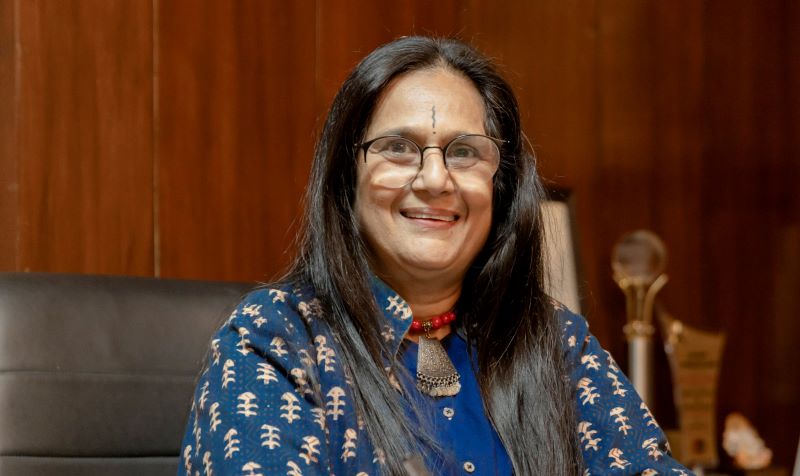Dr Neelam Gupta is the President and CEO of AROH Foundation – a not for profit organization working in more than 18 states of India towards the cause of socio – economic upliftment of poor since its inception in the year 2001. Dr Gupta is a gold medalist from Delhi University and holds a Ph.D in Agricultural Sciences with more than 20 years of experience in extensive social work. In this article she shares insights on how CSR activities can play an important role in advancing gender equality.
In recent years, companies have increasingly focused their CSR efforts on creating opportunities for women and girls. CSR gender efforts often start with a focus on bringing women “up to speed” through trainings, hiring quotas, and scholarships. This type of education and capacity building is important. But if social norms dictate that a woman cannot work outside the home or travel alone to other communities, she cannot use the business skills she’s developed to engage in the workforce. There is a limit to how effective individual-level interventions can be.
The need is to Go Beyond the Individual - CSR programs that strive to create gender equity must be thoughtfully and intentionally developed to consider complex social, economic, cultural, and political nuances, such as household decision-making dynamics, gender roles, and access to resources.
Like for example, In India, Tata Tea is also taking an approach that addresses both contextual and policy influences on gender equity. The company is utilizing marketing and advocacy to promote national policy shifts in education requirements. Their "Jaago Re" advocacy platform recently established a petition to urge the Indian government to make gender sensitization classes mandatory in schools. These classes have been piloted in Mumbai and the state of Jharkhand and a recent evaluation showed that the program leads to increased engagement across genders, increased communication, and decreased acceptance and perpetration of violence. Importantly, Tata Tea has also included a direct effort to engage men in gender equity efforts and a policy level effort to enact national change. As companies expand their understanding of gender equity and what it takes to achieve it, they embrace these broader contextual and systemic opportunities to ensure the success and sustainability of investments that might initially seek to empower women and girls as individuals.
Incorporate the voice of women and girls: Bring in the voices of women and girls to ground the program in real-life experiences. This is often more challenging than it seems, as social norms can prevent women from participating in research or advocating for their perspectives. Alternatively, women-centered design ensures that the views of the target audience directly influence program design.
Conduct gender analyses: Context-specific gender analyses can surface barriers that are fundamental to addressing gender equity. Both qualitative and quantitative data can be used to understand when and how gender plays a role and when other factors such as class, race, or economic status may be more dominant factors.
Invest in baseline research: Before any CSR program begins, it is good practice to start with baseline data collection that is sex-disaggregated to ensure that the program starts with an aligned understanding of the problem. This baseline can be used to measure progress as the program advances and capture outcomes across men and women separately.
Map the ecosystem: Project design should include a holistic understanding of all of the private and public players in the issue and target geography. This will allow greater visibility into the broader set of resources that corporate investments plug into and the distinct role they play. Ecosystem mapping also ensures that while a company may not work at the individual, relational, and systems level, it can be sure that its intervention is not happening in isolation or duplicating existing efforts, giving it a higher probability of success.
Our research suggests that CSR can play an important role in advancing gender equity when it is designed for the complexities of real life. Acknowledging the web of challenges within families, communities, and at the policy level that shape a woman’s experience is critical to implementing effective CSR programming. These power dynamics are complex and challenging to navigate, but by improving gender equity we improve outcomes for all.








.jpg)










